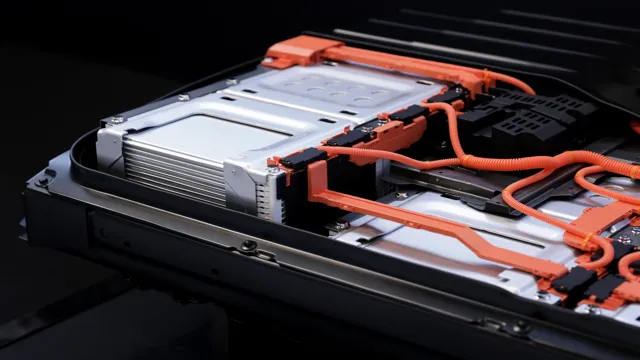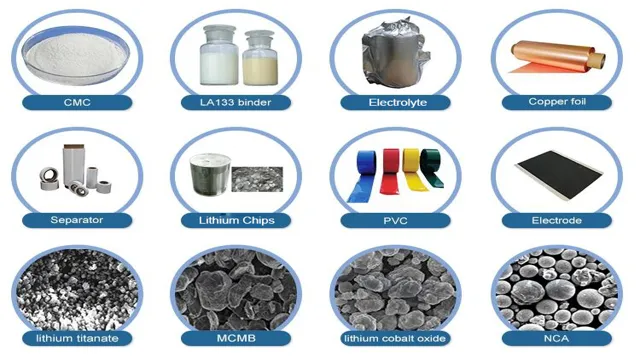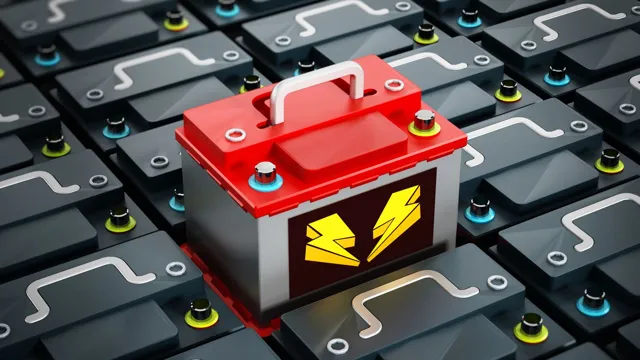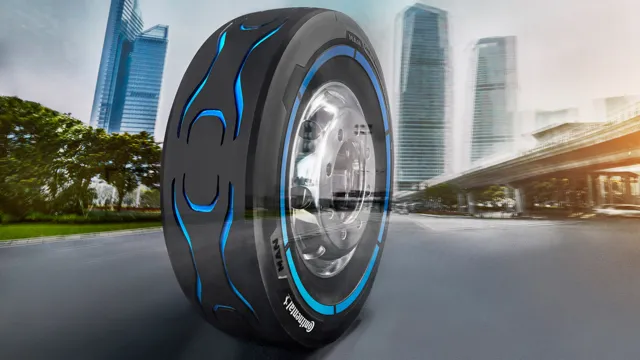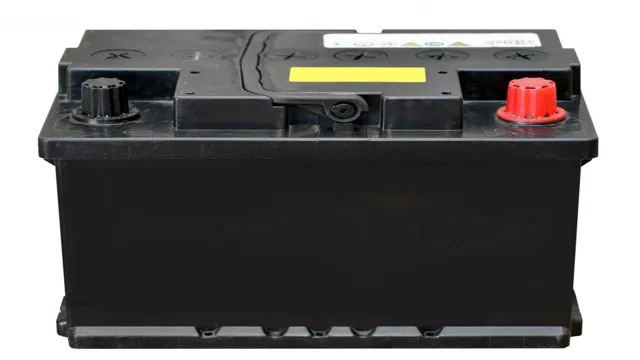Unveiling the Truth: Does Your Electric Car Come with a 12V Battery?
Electric cars have been dominating the headlines recently, as more and more people are making the switch to environmentally-friendly vehicles. However, there is still confusion around the role of the 12V battery in these electric cars. While many assume that electric cars do not have a traditional battery, the reality is quite different.
In fact, most electric cars still rely on a 12V battery to operate key components such as the lights, audio system, and air conditioning. This may seem like a small detail, but it plays a critical role in ensuring that the vehicle is able to function properly and safely on the road. But how exactly does this 12V battery work within the larger context of an electric car? Are there unique considerations that electric car owners need to keep in mind when it comes to maintaining their 12V battery? These are important questions that all current or future electric car owners should be aware of.
In this article, we will dive into the role of 12V batteries in electric cars, and explore some tips and tricks for ensuring that your battery stays healthy and functional. Whether you’re a seasoned electric car owner or just curious about this innovative technology, read on for an enlightening look into the world of electric cars and 12V batteries.
Electric Cars & Traditional Vehicles
Yes, electric cars do have a 12v battery, just like traditional cars. However, the 12v battery in electric cars has a different function compared to the one in traditional cars. The 12v battery in an electric car powers the vehicle’s electrical systems, including the lights, audio, and climate control.
In contrast, the 12v battery in a traditional car only powers the starter and the accessories. It is important to note that the electric car’s main power source is its high-voltage battery pack, which provides energy to the electric motor. The 12v battery in an electric car serves as a backup battery in case of emergencies and helps to keep the vehicle’s electronics running when the car is turned off.
Overall, the 12v battery in an electric car plays a crucial role in ensuring the smooth functioning of the vehicle’s electrical systems.
Comparison of Power Sources
When it comes to power sources for vehicles, electric cars and traditional vehicles have significant differences. Electric cars rely solely on a battery-powered electric motor, while traditional vehicles use an internal combustion engine that runs on gasoline. The main advantage of electric cars is their significantly lower environmental impact since they emit zero emissions and can be powered by renewable energy sources such as solar or wind power.
On the other hand, traditional vehicles are more widely available and have a longer range, meaning they can travel further before needing to refuel. Additionally, traditional vehicles are often less expensive than electric cars, although this is gradually changing as battery technology improves and becomes more affordable. Ultimately, the choice between electric cars and traditional vehicles depends on an individual’s driving habits and priorities, but it is clear that as technology improves, electric cars are becoming an increasingly attractive option for environmentally-conscious drivers.
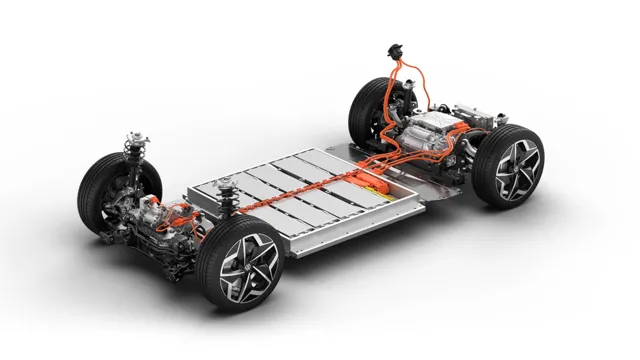
What is a 12V Battery?
Yes, electric cars do have a 12V battery. This battery is used to power the various auxiliary systems in the car, such as the lights, stereo, and air conditioning. Unlike the large lithium-ion battery that powers the motor, the 12V battery is a traditional lead-acid battery, much like the ones found in gas-powered cars.
Although it may seem small and insignificant, the 12V battery is crucial in ensuring the smooth functioning of the vehicle. It acts as a backup power source in case the main battery fails, allowing the driver to start the car and get it to a service center. Overall, the 12V battery is an essential component in any electric car, and it plays a vital role in keeping the vehicle running smoothly and safely.
Function of 12V Batteries
A 12V battery is a type of lead-acid battery that is commonly used in vehicles, boats, and small electronic devices. It gets its name from the voltage output it produces, which is around 12 volts. The function of a 12V battery is to supply electrical energy to these devices, allowing them to start or operate.
When the battery is connected to a device, such as a car or boat, it provides the necessary power to start the engine and operate the lights and other electrical components. In electronic devices, it serves as a portable power source, allowing them to function without the need for an electrical outlet. 12V batteries are reliable and durable, but they do require maintenance to ensure optimal performance.
Regular charging and periodic checks of the battery’s electrolyte levels and connections are essential to keep it running smoothly. Overall, a 12V battery is a fundamental component in many different types of equipment, and without it, these devices would not be able to function properly.
Usage in Traditional Cars & Trucks
If you’ve ever owned a car or a truck, then you’re probably familiar with a 12V battery. It’s the battery that powers the car’s electrical system and allows you to start the engine. The 12V battery is typically located under the hood of the car and is charged by the alternator while the car is running.
It’s a crucial component of the car, and without it, you wouldn’t be able to operate any of the vehicle’s electronics. The 12V battery is also responsible for providing power to the lights and radio, and it’s used to recharge the car’s auxiliary battery in some hybrid vehicles. Overall, the 12V battery plays an essential role in ensuring that your car is running smoothly and efficiently.
So if you ever need to replace your car’s battery, make sure to choose a high-quality 12V battery to keep your car running smoothly.
12V Batteries in Electric Cars
Yes, electric cars do have a 12V battery, and it plays an essential role in powering various functions of the vehicle. Unlike conventional cars that rely on a 12V battery to start the engine, the primary function of the 12V battery in an electric car is to power the various accessories, such as lights, infotainment systems, and other electronics. The 12V battery also serves as a backup power source for the electric car’s high voltage battery, ensuring that critical systems such as airbags and anti-lock brakes continue to function even if the high voltage battery fails.
Although 12V batteries in electric cars are similar to those in conventional cars, they are specially designed to handle high discharge rates and can last for several years with proper maintenance. Overall, the 12V battery is a vital component of an electric car, ensuring that the vehicle’s various systems operate smoothly and efficiently.
Role of 12V Batteries in Electric Cars
Electric cars run on high-voltage batteries, typically ranging from 200V to 800V, which power the motor. However, few people realize that there is also a 12V battery present in an electric car. This smaller battery operates many of the electrical systems in the car, such as the headlights, horn, and dashboard displays.
While 12V batteries may seem insignificant, they play a vital role in the functioning of an electric car. For example, they help start the charging process, initiate the high-voltage control systems, and maintain the Internet connectivity to the car. If the 12V battery malfunctions, the electric car may not be able to start despite having a fully charged high-voltage battery.
Thus, it is crucial to maintain the 12V battery’s health and replace it as necessary to ensure the proper operation of an electric car. So, if you own an electric car, it’s vital to keep a close eye on the health of your 12V battery to avoid any surprises down the road.
Charging & Maintenance
When it comes to electric cars, the 12V battery plays a crucial role in maintaining the vehicle’s overall performance. This battery is responsible for powering the car’s electrical components, including the radio and lights. However, unlike traditional cars, the 12V battery in electric cars doesn’t power the engine.
Instead, it works alongside the high-voltage battery to run the car’s electrical systems. It’s important to keep the 12V battery charged and well-maintained, as it can affect the performance and longevity of the car’s other electrical components. Regular maintenance, such as checking the battery’s terminals and ensuring it’s properly secured, can also prolong the life of the battery.
So, while the 12V battery may not be the star of the electric car, it’s a critical component that shouldn’t be overlooked.
Benefits of 12V Batteries in Electric Cars
Yes, electric cars do have a 12v battery. Although the 12v battery in electric cars is smaller than those found in traditional gas-powered cars, it plays a crucial role in the vehicle’s operation. The 12v battery powers the car’s electronics and accessories, such as the headlights, radio, and air conditioning, when the car is not in motion.
Additionally, it provides power to the car’s onboard computer system to ensure that it can start the main electric drive system. Another benefit of having a 12v battery in electric cars is that it acts as a backup power source if the main battery pack fails. This ensures that the driver can always start the car and drive it to a location where the battery can be replaced or recharged.
In short, while the 12v battery may be small, it is an essential component that helps electric cars perform smoothly and reliably.
Efficiency & Sustainability
Electric cars are becoming increasingly popular as people seek to reduce their carbon footprint and dependence on fossil fuels. One key component of an electric car is the battery, and the trend is moving towards 12V batteries. This is because 12V batteries offer a number of advantages over their larger counterparts.
Firstly, they are more efficient, meaning less energy is wasted. They are also more sustainable, as they can be recharged from renewable sources such as solar panels. Additionally, 12V batteries are lighter and smaller, meaning they take up less space in the car and make it easier to maneuver.
The use of 12V batteries is a step towards greater efficiency and sustainability in the electric car industry, helping to reduce our impact on the environment.
Cost-Effective Operation
Electric cars are becoming more and more popular around the world as people look for ways to reduce their environmental impact and save money on gas. One of the most important components of any electric car is the battery that powers it, and many manufacturers are now using 12V batteries to provide a cost-effective solution. These batteries are much cheaper than traditional car batteries and can be easily swapped out if they need to be replaced.
They also have a longer lifespan than their larger counterparts, which means less money spent on maintenance and repairs over time. Additionally, 12V batteries are more compact and lightweight, which improves the overall efficiency and range of the vehicle. Overall, the benefits of using 12V batteries in electric cars are clear – they are more cost-effective, practical, and efficient than traditional car batteries.
If you’re looking to purchase an electric car, it’s worth considering one that uses a 12V battery to save money and reduce your carbon footprint.
Conclusion
In conclusion, while electric cars may not rely on a traditional 12v automotive battery to power their engines, they still require a battery to operate their electronics and accessories. So while you may not need jumper cables and a can of soda to jumpstart your electric vehicle on the side of the road, you’ll still want to ensure that your electrical system is properly charged and maintained to keep your ride running smoothly. After all, even the most cutting-edge technology is only as reliable as its power source!”
FAQs
What is the purpose of a 12v battery in an electric car?
A 12v battery in an electric car is used to power the vehicle’s accessories, such as the lights, stereo, and air conditioning.
How long does a 12v battery typically last in an electric car?
The lifespan of a 12v battery in an electric car can vary depending on usage and environmental factors, but it typically lasts around 3-5 years.
Can a 12v battery be replaced in an electric car?
Yes, a 12v battery in an electric car can be replaced, just like in a traditional gasoline-powered car.
Are there any specific maintenance requirements for a 12v battery in an electric car?
Regular maintenance, such as checking the battery’s voltage and cleaning the terminals, can help prolong the life of a 12v battery in an electric car. It is also important to ensure that the battery is properly charged, especially if the vehicle is not being used for an extended period of time.

